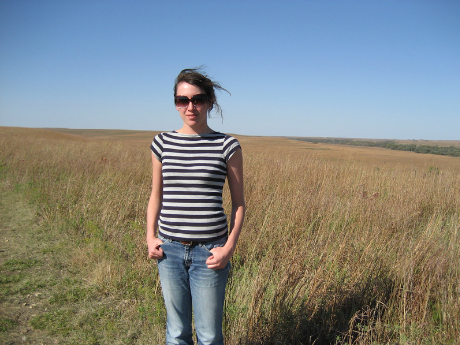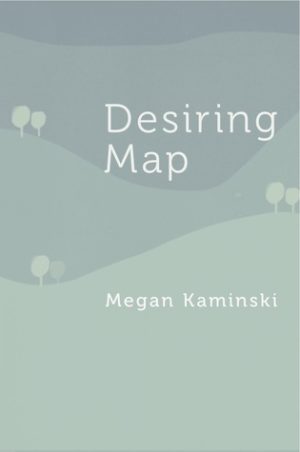In Their Own Words
Megan Kaminski's “My syntax shift”

My syntax shift
My presence on the winter boat contradicted
all prescience on the matter of drowning
far into the Atlantic. Further west near the Hudson,
autumnal blankets whisper over mountains
and through resurrectionless forests. Imagine flying from
boats to biplanes, sprinkling dust and dawn along
the way. The undoing of summer made my syntax shift
and examine your listing out center the bay. Somewhere along the journey,
your boat drifted away, off to a triangle or under a bridge.
Its casing stressed beyond regulation, and its seaworthiness
questionable, at the very least. In damask-lined parlors
I marvel at the congenital daybreak, compute
ratio of wave to tree.
All rights reserved. Reprinted with the permission of the author
On "My syntax shift"
"My syntax shift" is both at the heart of Desiring Map and an outlier in the book. It is the only poem that uses the sentence as unit of composition, hence its title—so, in that way it certainly works within a different cadence, a different logic from the other poems. The poem also marks a shift in the book—away from the dreamy renderings of place in the sequence that it concludes and into the more concrete spatiality of the Kansas plains. It captures, perhaps better than any other poem in the collection, a sense of memory and longing and the way that those things can connect and carry us across space and time.
Though it may not seem so on the outset, this is a very personal poem. I wrote it when I was living in Portland, Oregon, which, at the time, was starting to feel like home. In some ways the poem was my way of imagining myself back onto the East Coast (where I originally am from), especially the coast itself, the quiet stillness that it can have on gray and wintery days. At the same time, the world of the poem is really very much an imagined world. I am not sure what it says about me that my imagined world, my desiring map, is populated by drowning and disappeared ships and resurrectionless forests. There is something sad about that world, but I still felt a stronger connection to it than I did to the mild Oregon winter and the sidewalk below my apartment teaming with shoppers and coffee-shop goers. The coast and the sea, especially in the colder months—the time when all the tourists are long gone—is a place that continues to call to me. In its cold and quiet desolation, it captures something of the landscape of my heart.
While I would not deny this sadness, the poem is very much about the possibilities of memory and language—the power of the mind and of poetry to reimagine and reconfigure the past and create projective futures. It demonstrates the ability of language and memory and art to join together and transform loss into something beautiful.



